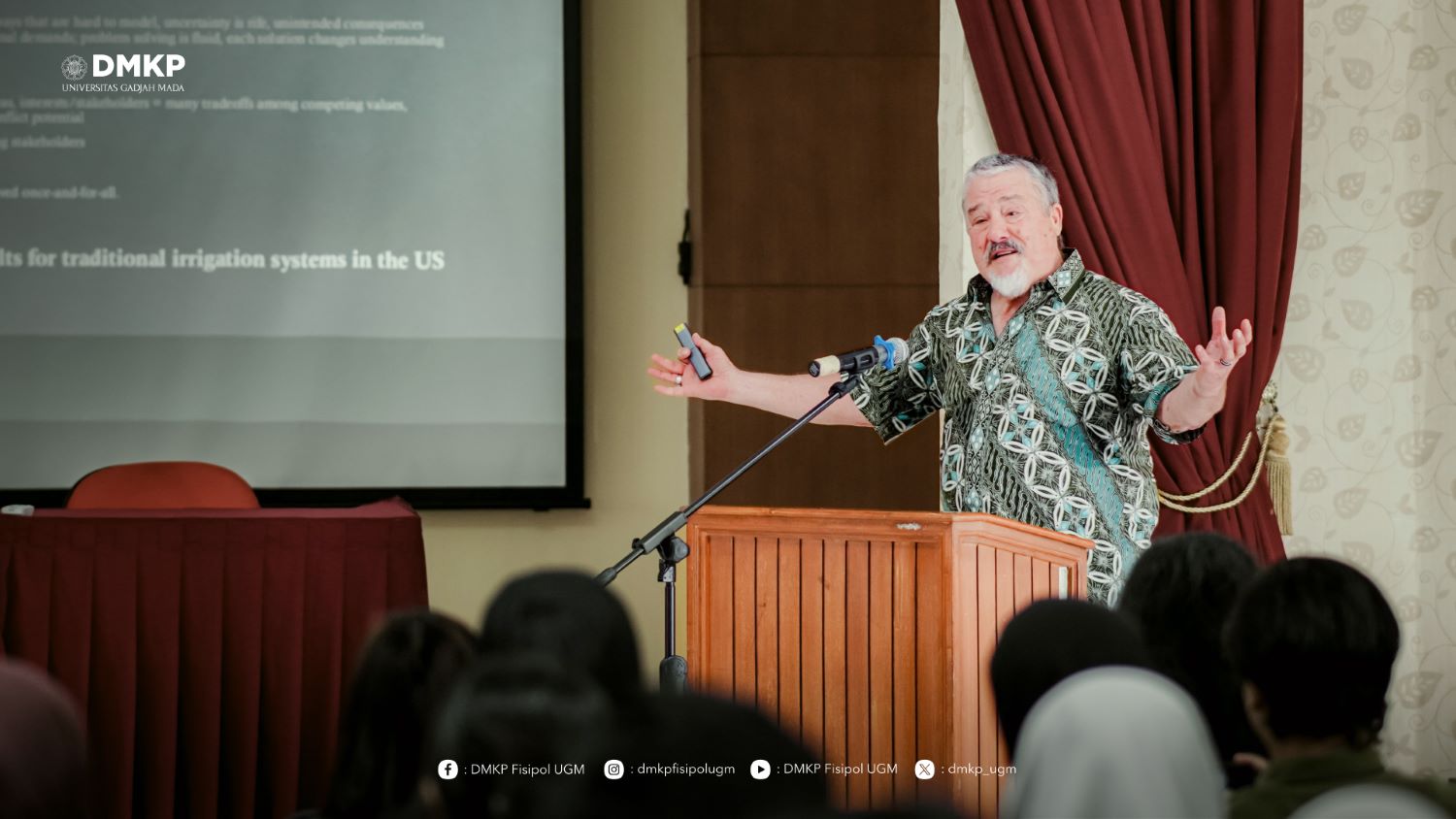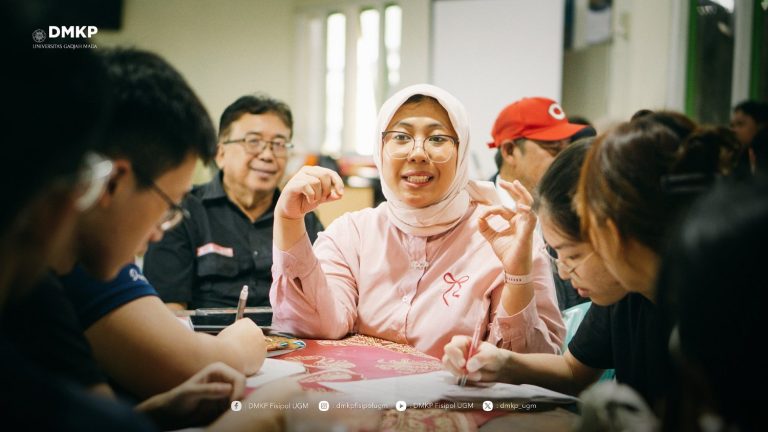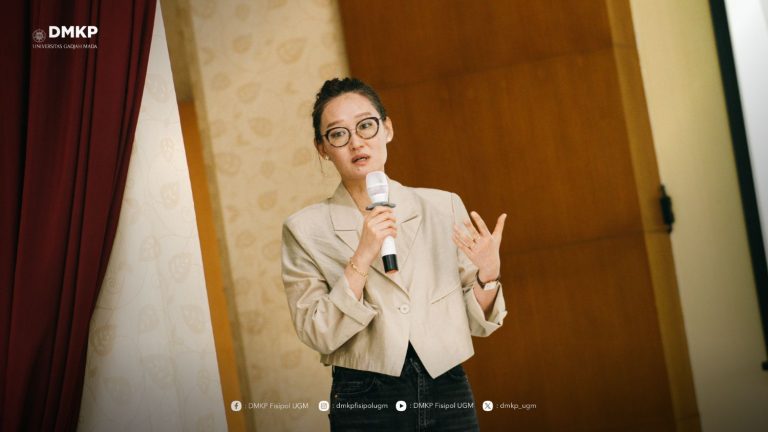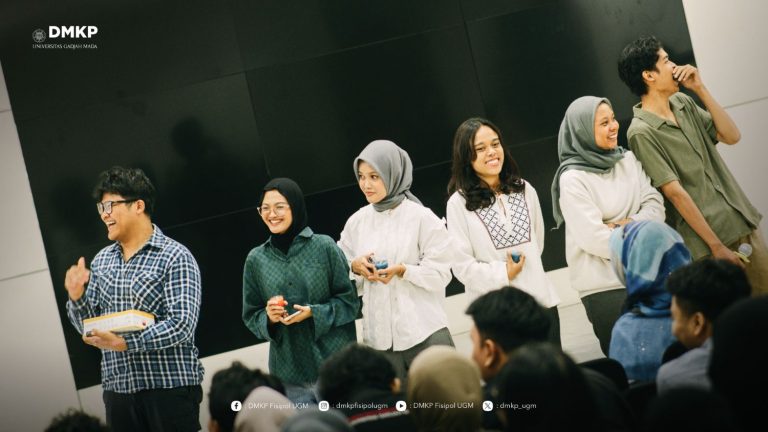The Department of Public Policy and Management (DMKP) at Universitas Gadjah Mada (UGM) held a general lecture in February 2025 with the theme “Integrated Hydro-Irrigation-Restoration Systems: Creating Sustainability by Solving the Wicked Problem of the FOOD-Water-Energy Nexus.” The event featured Prof. Edward P. Weber from Oregon State University, who presented innovative approaches to managing the interdependence of the food, water, and energy sectors to achieve long-term sustainability.
In his presentation, Prof. Weber highlighted the challenges faced by the Food-Water-Energy (FWE) system, which has often been managed as separate entities. This fragmented approach has proven inefficient and tends to create imbalances in resource utilization. By promoting the concept of integration, the hydro-irrigation-restoration system offers a solution to unify these three sectors into a connected and mutually supportive framework.
Through this approach, the FWE system can increase efficiency, reduce negative cross-sectoral impacts, and establish long-term sustainability. Prof. Weber provided examples from the western United States, where modernizing irrigation systems by using pressurized pipelines, small-scale hydropower plants, and precision irrigation technology has reduced water waste by up to 53% and lowered energy costs by 73.1%.
Moreover, this system has shown positive environmental impacts, such as preserving fish habitats through the installation of horizontal fish screens and improving river ecosystems. From an economic perspective, the modernization has generated new revenue through electricity sales and increased agricultural productivity by applying water and fertilizers more precisely.
Prof. Weber emphasized that while the system requires significant initial investment, the long-term benefits — including reduced operational costs, increased revenue, and environmental sustainability — make it a feasible and worthwhile solution. This concept is expected to inspire Indonesia to develop more integrated policies in the food, water, and energy sectors.
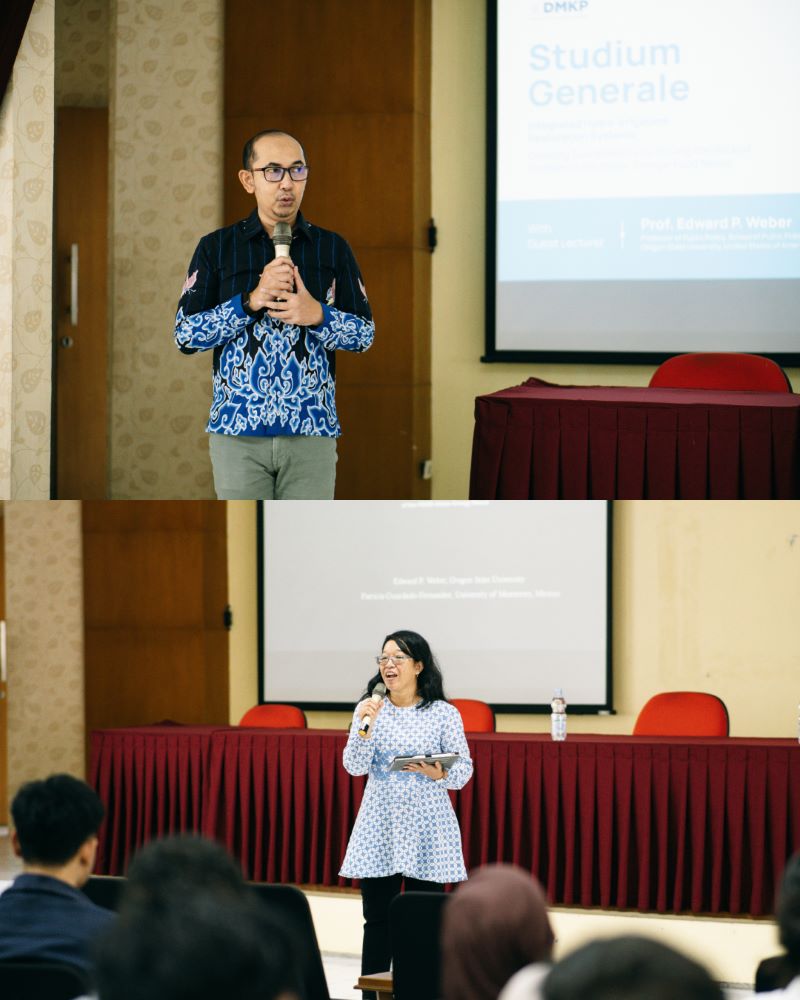
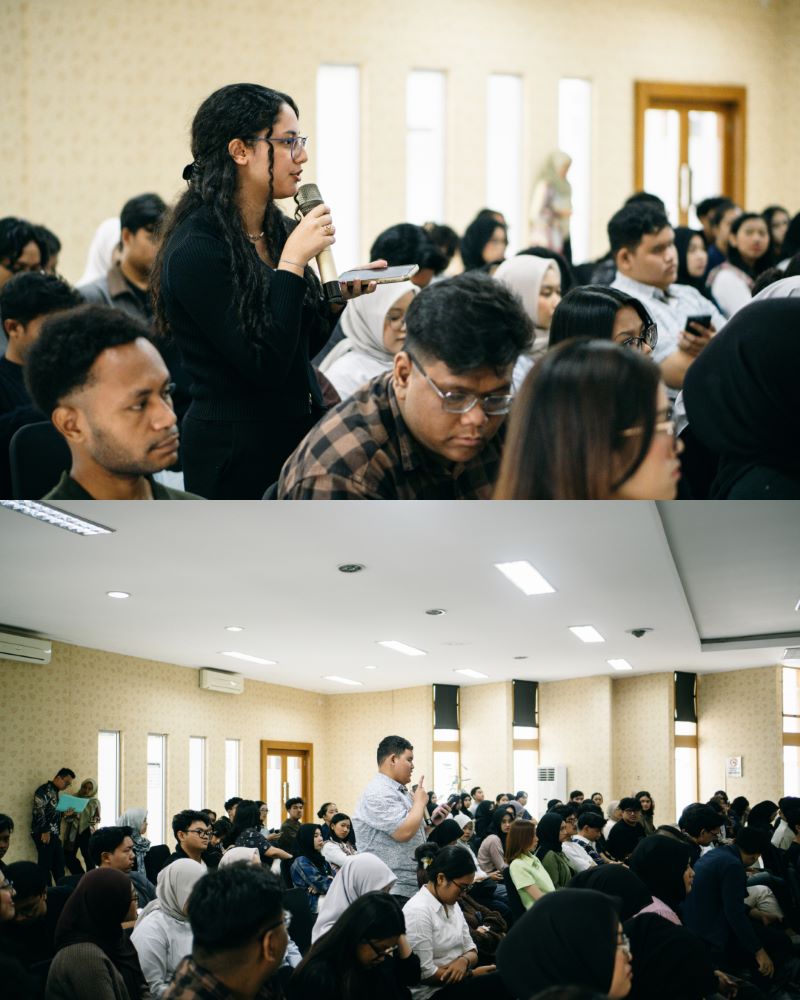
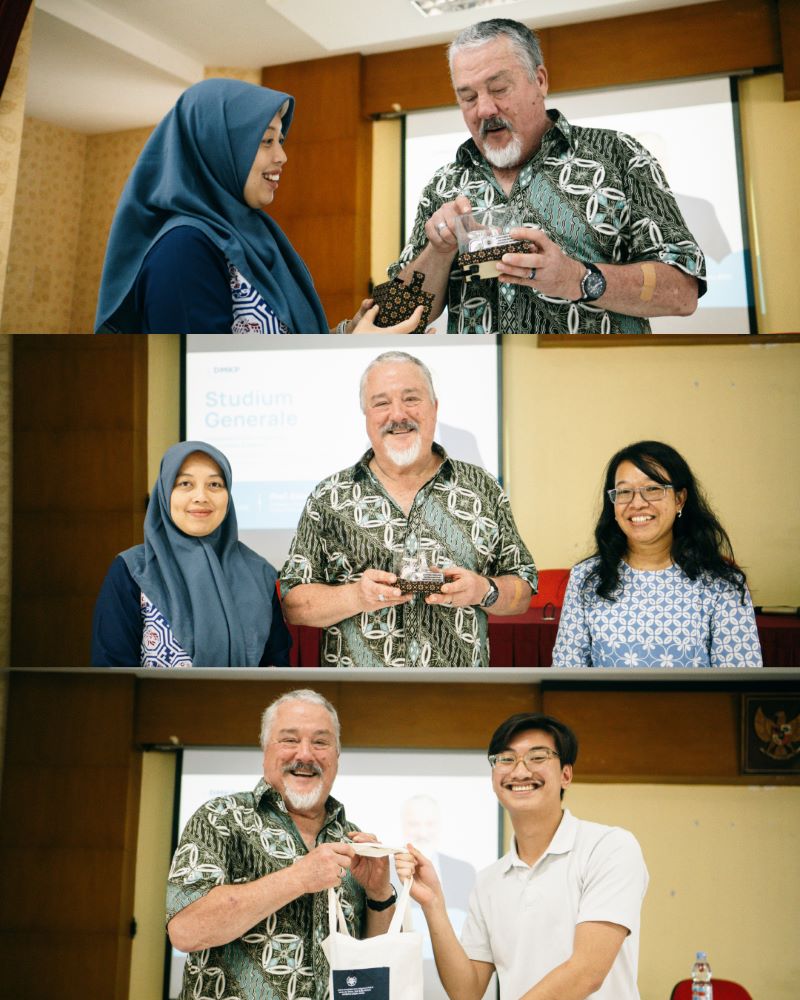
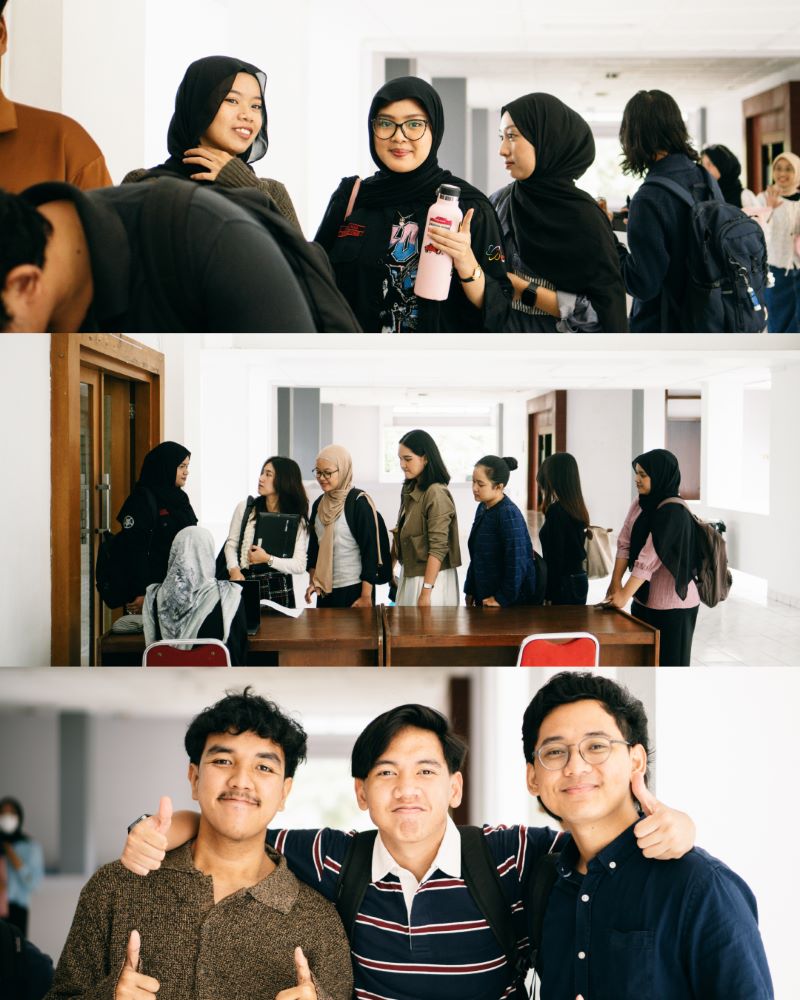
Through this general lecture, DMKP UGM students and academics gained new insights into the importance of a systems-based approach in addressing complex policy challenges. With innovation and collaboration, the issues of food security, water resource management, and energy demands can be tackled more efficiently and sustainably.

